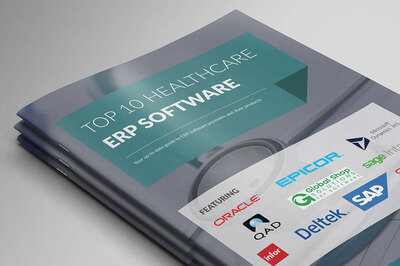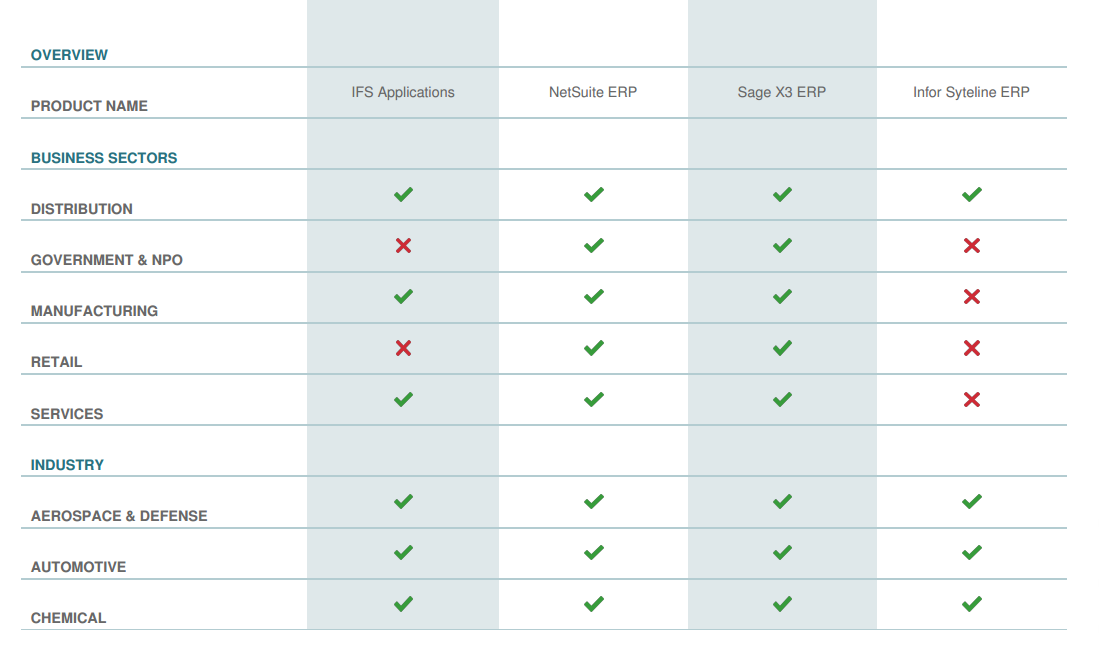Compare the top Healthcare & Medical ERP solutions with ease
Discover the leading healthcare ERP solutions tailored to streamline your operations and enhance patient care.
Use our comparison engine to evaluate the top healthcare ERP systems and choose the one that perfectly aligns with your organization’s needs.
The best ERP for healthcare in 2026
When selecting an ERP for healthcare, prioritize functionality, scalability, and compliance. Below are some of the top systems worth considering:
- Sage X3
- Microsoft Dynamics 365
- Sage Intacct
- SYSPRO
- Epicor Kinetic (formerly Epicor ERP)
- QAD Adaptive ERP
- DELMIAWorks Manufacturing ERP
- Infor CloudSuite
- NetSuite ERP
The best ERP for healthcare isn’t a one-size-fits-all solution. It depends on your hospital or practice size, the services you offer, regulatory requirements, and budget.
Use our filters to sort solutions by key features—healthcare ERP modules like compliance management, integration capabilities, inventory control, and scalability for both large hospitals and small clinics—to find the medical ERP that supports your workflows.
What is a healthcare ERP?
A healthcare ERP system integrates core business processes: finance, human resources, supply chain, and inventory management, into a unified platform. Unlike standalone tools, ERP software for healthcare ensures smooth coordination across departments, speeds up decision-making, and keeps you audit-ready with built‑in compliance features.
For hospitals and clinics, ERP in healthcare goes beyond back‑office operations. It uses real‑time data to optimize patient care through resource planning, inventory tracking for medical device ERP systems, and workforce management.
ERP vs. EHR: What’s the difference?
While both ERP software for the healthcare industry and electronic health record (EHR) systems are vital, their roles differ significantly:
- ERP systems focus on administrative and operational tasks such as accounting, payroll, and procurement.
- EHR systems manage patient health records and clinical workflows, giving providers instant access to accurate medical histories.
Combining ERP for healthcare with EHR systems enhances operational efficiency and patient outcomes.
Actionable next steps:
- Identify your must-have healthcare ERP modules (e.g., supply chain, billing, compliance).
- Filter our comparison by those modules and by deployment model (cloud vs. on‑premises).
- Schedule demos with top vendors to see their healthcare ERP solutions in action.

















